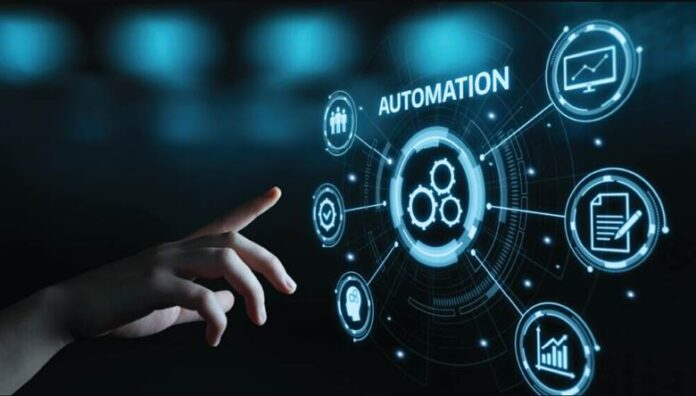South African businesses need to be efficient, nimble and resilient to thrive in a landscape characterised by economic uncertainty, rising costs, fierce competition and low growth. Automating business processes is one of the most effective tactics they can use to increase productivity, become more competitive and reduce costs.
Global research from Salesforce in 2022 found that nine out of ten organisations report that the demand for automation from business teams has increased over the last two years. The research also shows that organisations are looking to take automation to a whole new level, with 80% of respondents putting ‘hyperautomation’ on their technology roadmap within the next 24 months.
Indeed, hyperautomation has been on the radar since Gartner named it as a key trend three years ago. Gartner defines it as “a business-driven, disciplined approach that organisations use to rapidly identify, vet and automate as many business and IT processes as possible”, noting that it involves the coordinated use of multiple technologies, tools and platforms.
Some of the key elements of hyperautomation include:
- Robot process automation (RPA)—software robots that live on a server and carry out basic, repetitive back-office tasks. This includes capturing data in an application or generating a simple customer email.
- Artificial intelligence (AI) and machine learning (ML)—a broad category of tools and technologies that can sense, act and learn in ways that remind us of human intelligence and cognition.
- Natural language processing (NLP)—a type of AI that can process and understand spoken and written human language. This technology is key to applications such as chatbots and virtual assistants.
- Optical character recognition (OCR)—another type of AI that uses machine vision to extract text from image-based documents, such as PDFs or scanned invoices.
- Intelligent business process management suites (iBPMS)—software which enriches traditional business process management with AI and ML. This helps organisations to manage, monitor and automate workflows.
- Process mining—tools that help businesses analyse processes and identify opportunities for optimisation and automation.
- Intelligent document processing (IDP)—a business solution that uses machine learning, OCR, and NLP to extract data from email or scanned documents. It turns this data into a format a business system can store, classify and understand. This, in turn, enables computer systems to use the data to drive automated business processes.
Most of these tools are not new in themselves and some, like OCR and RPA, are already widely used. But what is innovative is the way that coordinating all of these technologies in a strategy of ‘hyperautomation’ enables businesses to automate more processes end-to-end. For example, combining RPA with OCR, AI and iBMPS could let an organisation automate processing an incoming purchase order from extracting the data to validating it for payment.
Another use case for hyperautomation might be automating travel and expense paperwork. Instead of gathering receipts from employees, manually processing data, determining whether the claims comply with expense policies and validating payment, most steps could be automated. Exceptions and queries could still be routed to a human to check.
In customer service, an AI chatbot could be used to respond to basic customer queries, gather information, and route more complex queries to a human agent. Many manual interactions could be eliminated and routine interactions could be handled in seconds. This allows agents to focus on adding value and improves customer service.
Elevating and scaling the benefits of automation
Businesses of all sizes have automated a range of processes over the past few years. Hyperautomation creates opportunities for them to dramatically scale and extend the automation of manual and rules-based tasks. The combination of technologies such as IDP, RPA and AI allow a company to automate even complicated, multi-step tasks.
These technologies have matured to a point where they are accessible for SMBs. This enables them to free up their people for higher-value tasks as well as rapidly grow their businesses in response to new opportunities. The ROI can be significant for companies operating in an uncertain landscape.
About Nashua
Nashua is the Total Workspace Solutions partner of choice for businesses and organisations of all sizes throughout Southern Africa. Using modern technology, our years of expertise, and a franchise model with an extensive regional footprint, we empower businesses to thrive in a constantly changing world.
Over the years, we have evolved from a leader in office automation into an integrated ICT solutions provider offering voice, energy, connectivity, cloud, currency management and document management solutions, access control, surveillance and more in our portfolio. Serving our clients for 50 years, we have always remained committed to a singular brand promise: Saving You Time. Saving You Money. Putting You First.
Nashua is a Reunert company.

